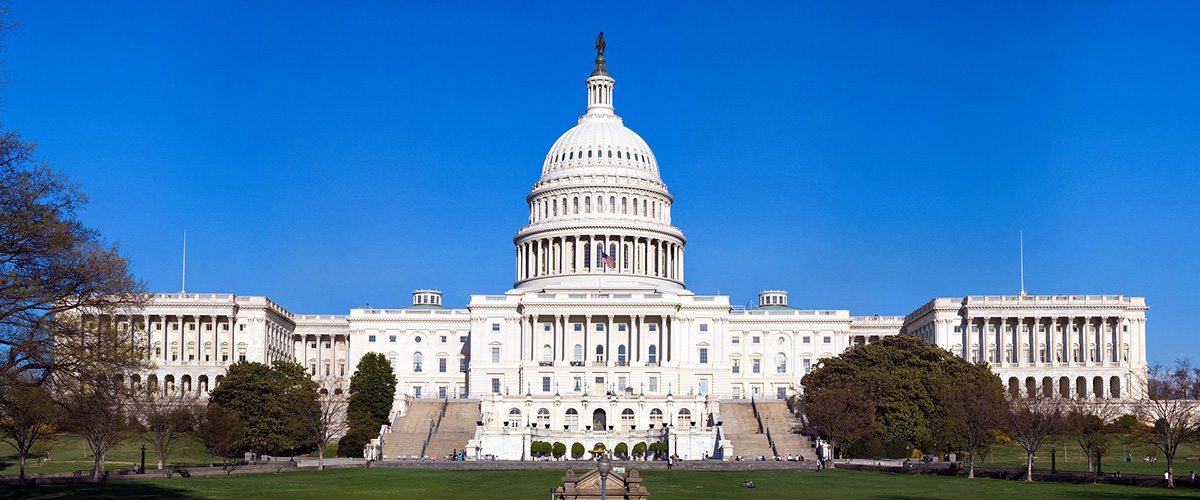Senator Cory Booker (D-NJ) introduced the Compassionate Access, Research Expansion and Respect States Act to the Senate on March 10, 2015. The bill has bipartisan support and is one of the best chances for the United States to reclassify cannabis and recognize states’ rights in regulating medical marijuana.
The Compassionate Access, Research Expansion and Respect States (CARERS) Act is a bipartisan piece of federal legislation that would curtail the United States’ war on cannabis. Introduced by Cory Booker (D-NJ), Rand Paul (R-KY) and Kirsten Gillibrand (D-NY), the historic CARERS bill would remedy state-federal conflict over medical marijuana laws by allowing the states that have already adopted medical marijuana legislation to continue their endeavors without concern over federal prosecution. In addition, it would reschedule marijuana from a Schedule I to a Schedule II substance, facilitating medical research efforts and opening up banking services to businesses in the cannabis industry.
“This bill that we are introducing seeks to right decades of wrong,” Booker said at a press conference last year. “Doctors and patients deserve federal laws that are fair and compassionate, and states should be able to set their own medical marijuana policies without federal interference. I am thankful to Senators Gillibrand and Paul as well as the Drug Policy Alliance for their hard work on this common-sense bill to make medical marijuana accessible to the millions of Americans who could benefit from it.”
What Would the CARERS Act Do?
The proposed CARERS Act (bill S.683) contains five significant changes in cannabis legislation:
Reclassify Cannabis as a Schedule II Substance:
The bill would reschedule cannabis from a Schedule I to a Schedule II drug and thereby remove any discrepancy in state and federal medical allowances. Currently, cannabis is classified as a Schedule I substance under the Controlled Substances Act. The Schedule I classification is reserved for drugs with the highest potential for abuse and no medical value. Schedule II is a classification reserved for less dangerous drugs that have an accepted medical use. Reclassifying marijuana to a Schedule II drug would ease restrictions on medical research, as it would remove the Public Health Service review requirements all marijuana research must go through and would open up additional research-grade marijuana sources.
Protect Medical Marijuana States from Federal Prosecution:
Among the most notable components to the CARERS Act is that it would allow for medical professionals to recommend and cannabis businesses to distribute medical marijuana to suffering patients without the fear of being prosecuted by the U.S. Drug Enforcement Agency. This new legislation would allow states to adopt and amend their own medical marijuana policies. States would not be forced to legalize medical marijuana, nor would they be in jeopardy with the federal government if they do opt for legalization.
Remove Cannabidiol (CBD) Completely From Controlled Substances Act:
Under this proposed legislation, cannabis with less than 0.3 percent tetrahydrocannabinol (THC) would be removed from the Controlled Substance Act’s schedules altogether. Marijuana strains with high levels of cannabidiol (CBD) have been found to possess therapeutic benefits and are not psychoactive. This means that unlike marijuana containing high levels of THC, strains that are high in CBD don’t cause users to have a “high.” States would therefore be legally allowed to import marijuana that is high in CBD and low in THC.
Lift Restrictions Preventing Veterans from Getting Cannabis:
The proposed legislation would allow doctors within the Department of Veterans Affairs to legally recommend medical marijuana to veterans suffering from certain conditions. Medical marijuana has been shown to help manage symptoms associated with post-traumatic stress disorder (PTSD). However, because of cannabis’s current federal legal status, VA doctors are banned from recommending marijuana treatments. Under the new law, VA doctors in states with medical marijuana legislation could recommend medical marijuana to veterans.
Allow Banks to Work with Cannabis Businesses:
Because marijuana is currently federally illegal, federal banks cannot service cannabis businesses in states that have legalized adult use or medical marijuana. Cannabis businesses are forced to stick with transactions that are cash only, putting retailers at risk and creating tax and payroll logistical nightmares. Under the CARERS Act, federal banking access and service would be expanded to medical marijuana businesses.
What’s the Latest with the CARERS Act?
Since the CARERS Act was introduced in March 2015, it’s been referred to the Senate Committee on the Judiciary and a hearing is expected to take place sometime in 2016. Earlier this month, the DEA announced it would reconsider reclassifying marijuana by June 2016 and noted that their efforts are in a direct response to the introduction of the CARERS Act.
There is concern from CARERS Act supporters, as the Chairman of the Senate Judiciary Committee, Senator Chuck Grassley (R-IA), has expressed that he’s not necessarily in favor of the bill. In addition to not yet scheduling a hearing on the CARERS Act, he recently said he opposes rescheduling.
“I oppose moving marijuana from a Schedule I to a Schedule II drug, based on the current science on the risks and benefits,” Sen. Grassley said in a statement. “For children suffering from severe epileptic seizures, the anecdotal evidence says components of the marijuana plant might help. I want to help those children. The key is aggressive medical research.”
Support for marijuana legislation is currently at an all time high among Americans. A recent poll by the Associated Press and University of Chicago found that approximately 61 percent of Americans support adult use marijuana legalization, and last year’s Gallup survey found that 70 percent of Americans are in favor of allowing medical professionals to legally recommend medical marijuana to patients for therapeutic purposes.






